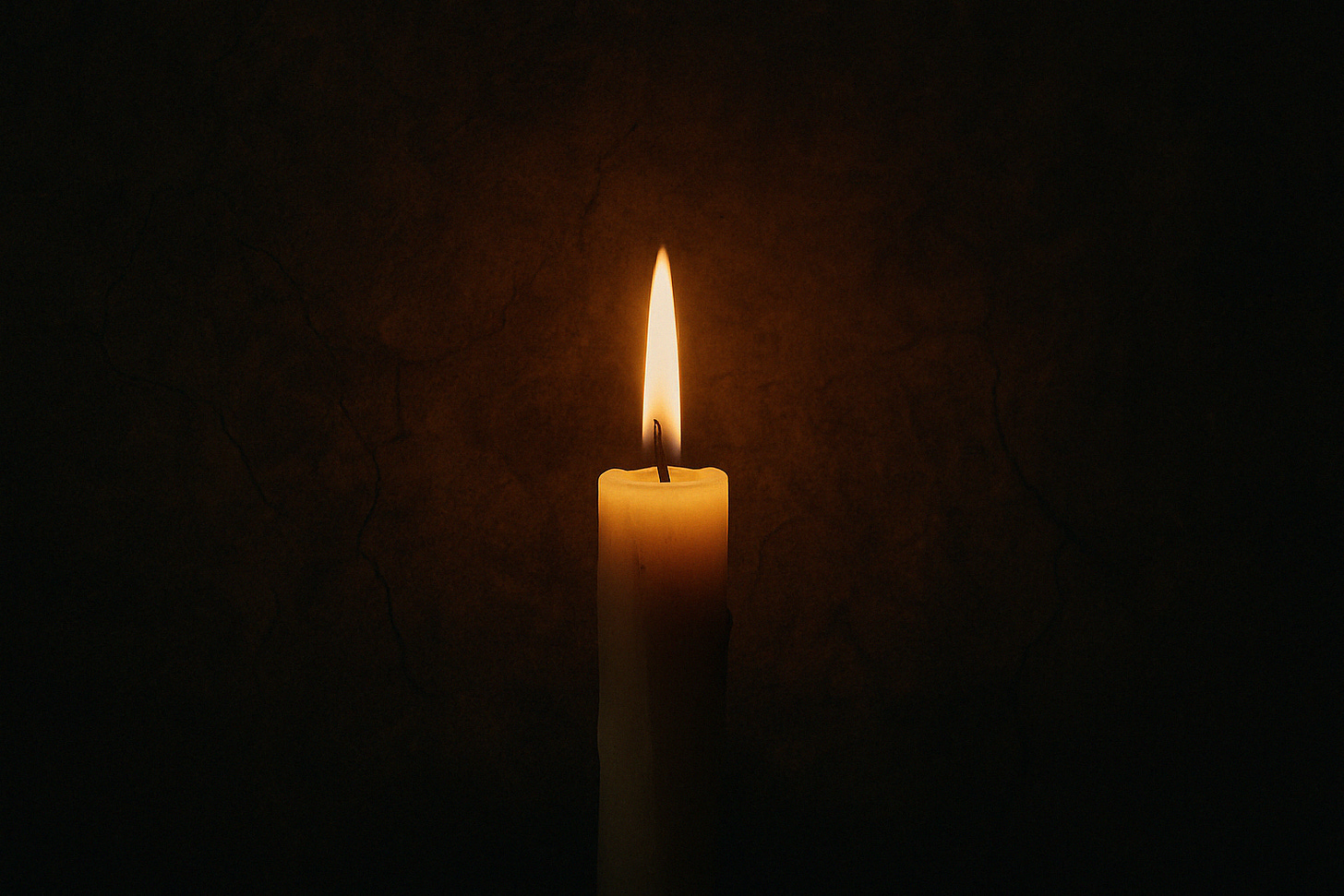Maybe That's Enough
Wrestling with faith, grief, and what happens when belief rejects reality.
I live in a place where most people are sure of things — sure of what’s right, what’s wrong, who’s in charge, and who’s to blame. I used to be more certain too. But over the years, doubt didn’t explode into my life. It eroded things slowly — like wind over stone. Gentle, quiet, and devastating.
Even as a kid, things didn’t sit right. I remember a 5th grade catechism class where we were asked to rate statements about God on a Likert scale. One of them said, “God is loving and forgiving.” After class, the priest called me aside and told me I’d rated God lower than anyone else. I felt ashamed — but I also knew why I did it. If God loves everyone, then why would anyone be sent to hell?
That moment planted something in me: a quiet resistance.
And over time, it grew roots.
When the pandemic hit, the whole house of cards came down. That was when I truly lost my faith — not just in God, but in people. In decency. In compassion.
People I respected — some who wore collars and held Bibles — refused to wear masks. Not because of science or faith, but to make a political point. When I lost two grandparents to COVID, people I thought were my friends said nothing. Offered nothing. Some of them didn’t believe COVID was real. Others thought hospitals were inflating death certificates for cash.
As if my family’s grief was part of a conspiracy.
It wasn’t just misinformation.
It was betrayal.
And the worst part? It came from people who claimed to follow Christ.
I still sit in the pew. I still bow my head. But I don’t always agree with what I hear. Sometimes I close my eyes and feel completely out of step with the rhythm around me — not because I’m trying to make a statement, but because I can’t pretend to believe something I don’t.
I used to think doubt was dangerous.
But now? I think blind faith is a lot scarier.
I’ve learned to live in that tension — between tradition and truth, between community and conscience. And I know I’m not the only one.
There are more of us than we realize — people trying to hold love and logic in the same hands. People raised in certainty who now live in complexity. We’re not trying to tear everything down. We just want space to breathe — and maybe a little silence when the sermon starts sounding like a campaign speech.
If you’re here because you’re asking harder questions — about faith, about culture, about truth — you’re not alone.
And if you’re not sure what you believe anymore, but you’re still trying to be good, and kind, and ethical…
Maybe that’s enough.
Maybe that’s everything.
In the weeks ahead, I’ll be writing more about the tension between faith and politics, how misinformation warps our relationships, and what it means to stay soft-hearted in a hardening world.
I’d love to hear from others sitting quietly on the other side of the pew.
What has your journey looked like?
The Other Side of the Pew is a reader-supported space. If this piece resonated with you, consider subscribing to receive future posts — and to help me keep writing honestly, thoughtfully, and freely.
Thanks for reading Jessica C.!




My background is in a different religious organization but the sentiment I have is the same. I found my own way to believe. I hope you find your way. 🌈🙏🏼